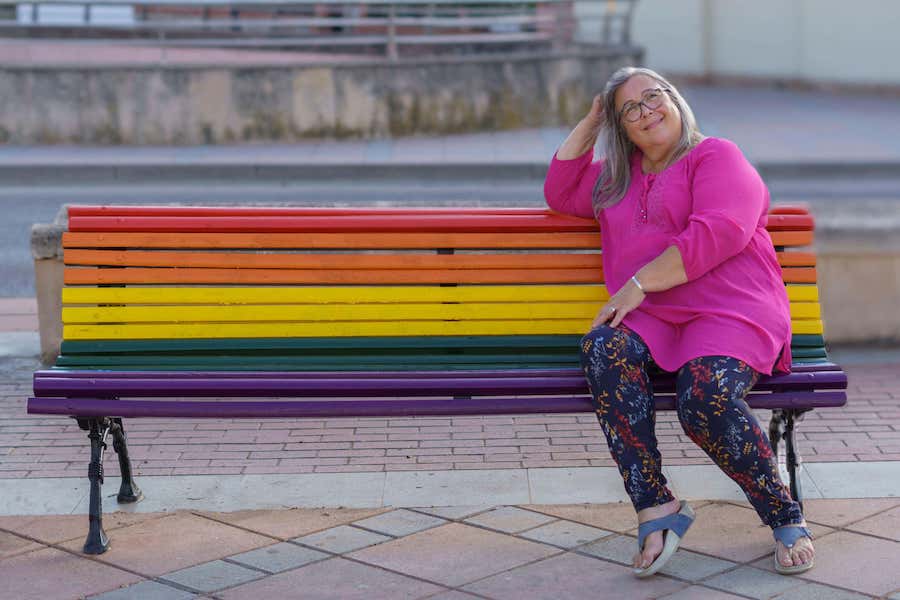How to support someone coming out in their 30s and beyond
Not everyone knows who they are at a young age
Coming out can be hard at any age, but by the time you’re well into adulthood it may feel terrifying, and be completely life-changing.
Many people who come out in their thirties and onwards may have wanted to for a long time but not felt safe enough to do so.
As October 11 marks National Coming Out Day, it’s important to reflect on how, if and when people can share their authentic selves.
View this post on Instagram
“I wasn’t raised in a time when it felt safe to express attraction to women,” says author and creative mentor Fiona Fletcher Reid, who came out last year at the age of 35.
“I wasn’t sure about my sexuality until I had psychosexual therapy and was able to explore all the layers of internalised homophobia and repression that I had accumulated over my 35 years,” she says.
So, how you can support someone who is going through it?
Don’t assume everyone is the same
Not every person’s coming out looks the same, and some LGBTQ+ experiences are not universal.
“Coming out is a personal experience and because it is often physically and emotionally dangerous to be openly queer, lots of people never feel able to be open,” says Fletcher Reid, now 36. “Some people might feel free to come out once they have ended a particular relationship, or after meeting people who they feel safe around.
“For others, like me, it’s that we don’t consciously acknowledge our sexuality until we are a lot older and have the confidence to work through the emotional implications and real-life consequences that come with that,”
The writer, from Glasgow, was going through a divorce at the time with a man she’d been with since the age of 17.
“During therapy, I talked a lot about the pain I was experiencing during intercourse as well as my general anxiety around sex. It wasn’t until I’d built up a trusting relationship with my therapist that I felt able to discuss the fact that I thought I might be gay and I did not expect that to come up, so I was just as surprised as everyone else when I came out.”
Don’t question their authenticity

Validate what the person who has come out is saying.
“Don’t say, ‘Are you sure?’ because you can rest assured that the person coming out to you has thought long and hard about this,” says Fletcher Reid. “Casting self-doubt on someone when they have opened up a vulnerable part of themselves to you is hurtful.”
Don’t question them about their sex life
It’s no one else’s business. “Please don’t ask about whether they have been intimate with anyone, or any other sort of suggestion that they need to ‘prove’ their sexuality to you,” she stresses.
Consider what they feel and accept that it is a big deal
They are probably feeling “a mix of emotions, including excited, happy, empowered and scared for their safety”, says Fletcher Reid.
“Sadly coming out can still cause huge ruptures in relationships so be aware that this is a huge moment for them and comes with real consequences.
“Dismissing their experience as ‘not a big deal’ because you think it’s ‘normal to be gay’ now is a dangerous and false narrative.”
It may sound simple, but just listening and supporting them is vital.

You will get to have so many wonderful new experiences to celebrate
“Be there to listen and try to celebrate all the new things that they are exploring as they come out, whether that’s dating, meeting new people or finding ways to experiment with their identity through fashion,” says Fletcher Reid. “Repeat often that you love and care for them and that you accept this evolution of them, that you are happy to see them happy.”
Suggest they find community
“Encourage them to talk to other people who have been through similar experiences if you can,” she says. “As much as friends and family want to understand what they are going through, it is far more validating to talk to someone else who has come out later in life and understands the emotional intricacies of the experience.
“They can also hopefully show them that there are good times ahead.”
Thank them for sharing with you
“It is a privilege that someone trusts you with coming out, especially later in life. Tell them that you are honoured to have been trusted with this information, and reassure them that you will keep it private until they are ready to tell other people,” Fletcher Reid suggests.
“The best reactions that I had from people were seeing their joy that I had discovered this important part of myself, and that had a huge impact on my ability to feel hopeful amidst the pain caused by my divorce.
“Allowing them to feel conflicted and guilty and offering reassurance that they have the right to be themselves will make them feel so much happier.”
The Press Association
Latest posts by The Press Association (see all)
- BBC to air two-part Call The Midwife Christmas special - December 23, 2024
- 6 mind sports to exercise your brain and keep you sharp - December 20, 2024
- Quiz: What classic Christmas food or drink are you? - December 20, 2024
- Leftover turkey and watercress pie - December 20, 2024
- Catherine and William choose family shot for Christmas card photograph - December 19, 2024




















